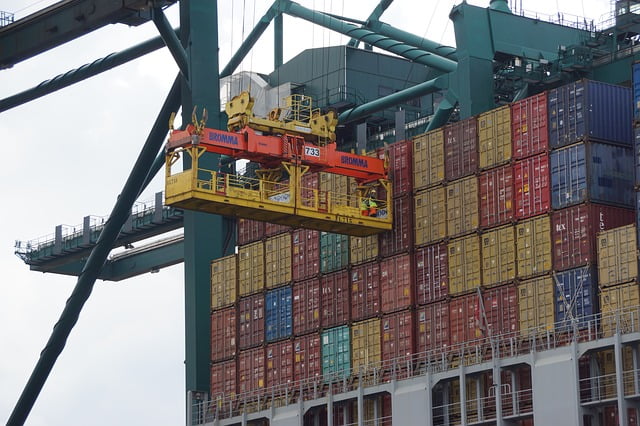We’ve seen use cases for blockchain tech across many industries, yet logistics is one in particular that’s seeing real results. As more of the world starts doing business with the rest of the world, a lot of things are getting moved from place to place. And while crypto can take care of payments, product still has to physically get from point A to point B. We haven’t come up with a technology that can teleport goods for us just yet.
But while we wait for our mastery of quantum physics to evolve, blockchain tech can at least make transporting items more efficient. From allowing for real-time tracking to ensuring that containers are at the right temperature, here are some of the ways in which blockchain is improving logistics:
Saving Money and Increasing Efficiency
Blockchain technology will enter mass adoption the moment it becomes profitable for businesses to use it. We may still be a ways off when it comes to cybersecurity or wiping out global poverty. But in logistics, blockchains are already impressing companies with their proven impact on what matters most – the bottom line.
A world leader in transportation and logistics, Trimble Transportation Enterprise is working to advance blockchain tech within the transportation and logistics industry through sister company TMW. By using a blockchain for freight tracking, they are able to help carriers save money, be more efficient, and reduce errors.
Freight tracking in itself is nothing new (we’ve got GPS, EDIs, and APIs for that). But as consumer expectations rise amidst promises of same-day or one-hour delivery, traditional methods are unable to scale. Not only can blockchain tech meet these new requirements, it also addresses the problem of authenticity.
Currently, as data passes through systems, there are abundant opportunities for it to be altered, tampered with, or misinterpreted. This not only causes chaos in the global supply chain, but it means that organizations are making decisions based on erroneous information. Blockchain technology brings a much-needed layer of trust and accountability. One Trimble customer, Dart Transit, expects to save over $2 million dollars a year with blockchain-built applications.
Last-Mile Delivery
Anyone who’s ever ordered online (that’s 96 percent of those who live in the US) have at some point probably received the wrong goods, waited for a delayed product, or had to leave their house when the item was due to arrive. Online shopping is the pinnacle of convenience, comfort, and choice. Repacking a bulky parcel and heading to the post office – not so much.
As major carriers struggle to keep up with the increase in online shopping, stolen packages and missed deliveries abound. And this creates significant inconveniences in the online shopping industry. Companies like NextPakk are cropping up to smooth out the bumps on the delivery road.
Using their blockchain-built application, consumers can create an account and use a NextPakk-generated ID and shipping address. This allows them to rearrange delivery for a time that’s convenient to them. Corporate Communications Officer Deb Olson enthuses, “Once packages arrive locally, consumers can schedule delivery in the evening when they’re home. Rather than lockers or drones, this is the solution to problems with last-mile logistics!”
Temperature-Sensitive Logistics
From perishable goods to pharmaceuticals, certain items depend on keeping a constant temperature. Smart Containers Group is the fourth largest player in the air freight pharmaceuticals logistics industry, with partnerships including major airlines specializing in pharmaceuticals.
The company has a proven track record of providing the safest containers worldwide, with temperature deviation results that are some 75 times better than the industry average.
Through its division SkyCell AG, they’re bringing a solution to market to ship critical items at the right temperature for the pharmaceutical industry.
And they’re taking it a step further, by planning to ship individual prescriptions, single syringes, and other low volumes of medications directly to patients through a B2C model.
Closing Thoughts
There’s a lot of hype around blockchains (as you may have noticed). And there’s also a lot of confusion as we explore uncharted territories. But while blockchain tech is just beginning to show its potential in some areas, in logistics, it’s fast becoming a must.

